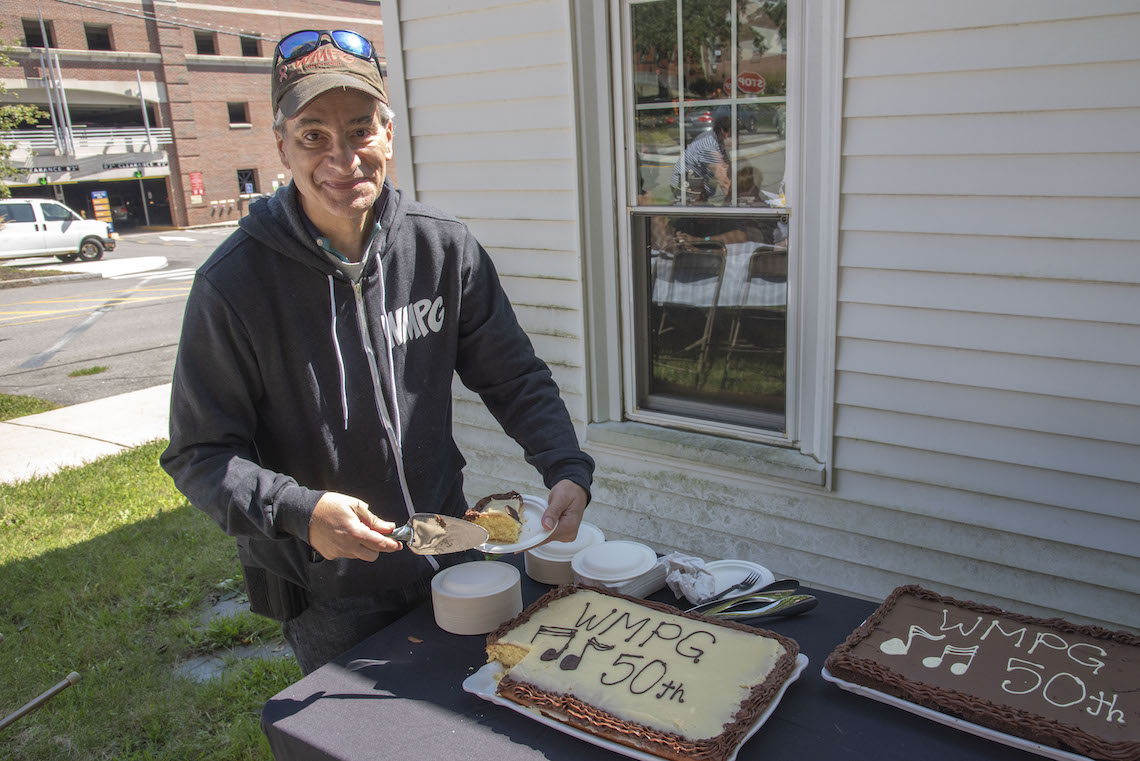
Founding fathers aren’t typically good at following rules. Sam Adams had the Boston Tea Party. And Howard Allen had the Gorham dance party.
The year was 1971 and Allen was an underclassman at the University of Southern Maine (then known as the University of Maine, Portland-Gorham). He wasn’t impressed by the selection on the local radio stations. “Elevator music” was the way he described it. Allen saw the untapped audience for rock and roll among his fellow students. So, he decided to give them what they wanted by launching his own unlicensed station.
The corners he cut to get on the air could have hurt Allen’s future at the college. Instead, he’s remembered as the founding father of WMPG. Allen returned to campus on Thursday, August 31, as an honored guest at the radio station’s 50th anniversary celebration.
“I wasn’t thinking 50 years later,” said Allen about his motivation. “I was thinking, ‘This is great!’”
The party outside the studio on Bedford Street was open to everyone, including current and past disc jockeys, listeners, and neighbors looking to join the fun. Guests were treated to a lunch buffet of picnic favorites, such as hamburgers, baked beans, and cookies. And it wouldn’t be a WMPG party without a steady stream of music to underscore the festivities.
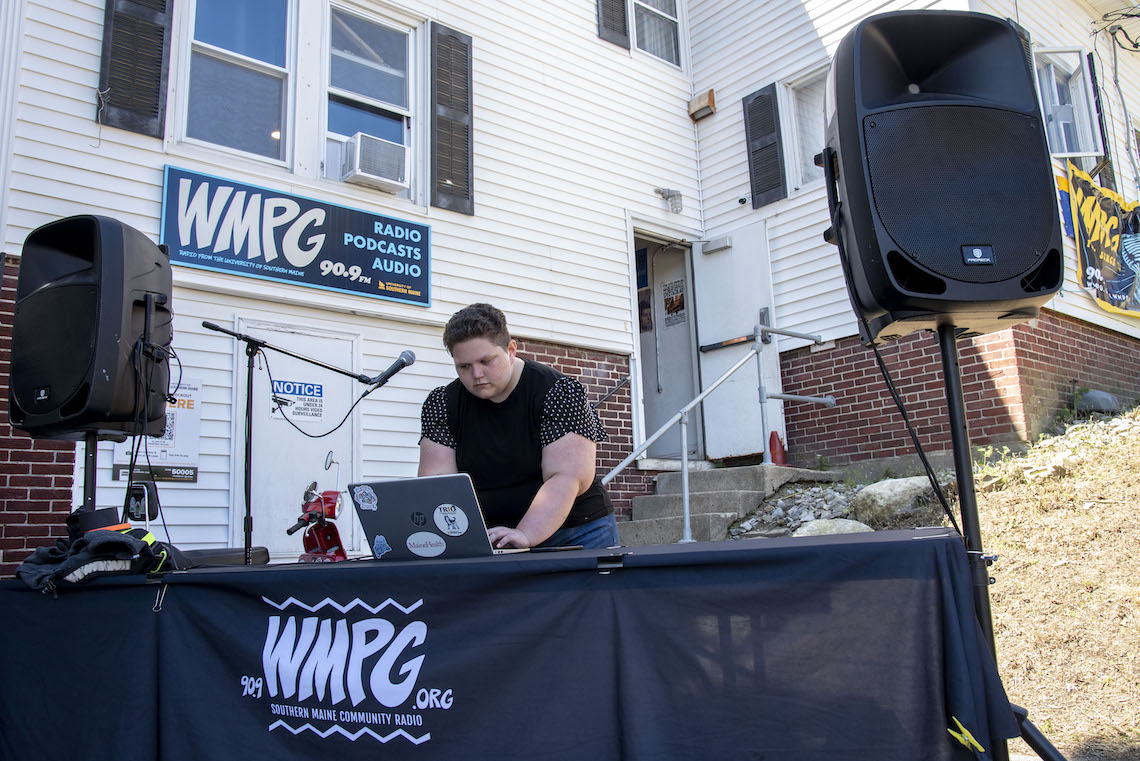
Emily Ireland handled the first DJ shift at the party. She’s a fourth-year student in the Social and Behavioral Sciences program. But to listeners of WMPG, she’s known as the host of the Fever Dream show, which airs 7:30-8:30 p.m. on alternating Mondays. She plays mostly contemporary country music. In the course of sharing other people’s songs, she found her own voice.
“There’s such a great community at WMPG. It’s one of the first ones I found at USM,” Ireland said. “My first semester here, I was really struggling to find where I fit in. I happened to get to visit the station and everyone was so nice I decided to stick around.”
Jim Rand is a big reason for that sense of community. He was also a student when he started at WMPG in 1986. After graduating, he decided to put his Business degree to use at the station he loved. Rand went from DJ to program director to his current role as station manager.
Technology changed greatly over the course of Rand’s tenure and he made sure WMPG stayed on the cutting edge. Vinyl albums gave way to compact discs which were then replaced by digital downloads. Once limited in range by the strength of its radio signal, WMPG now streams over the internet to a worldwide audience.
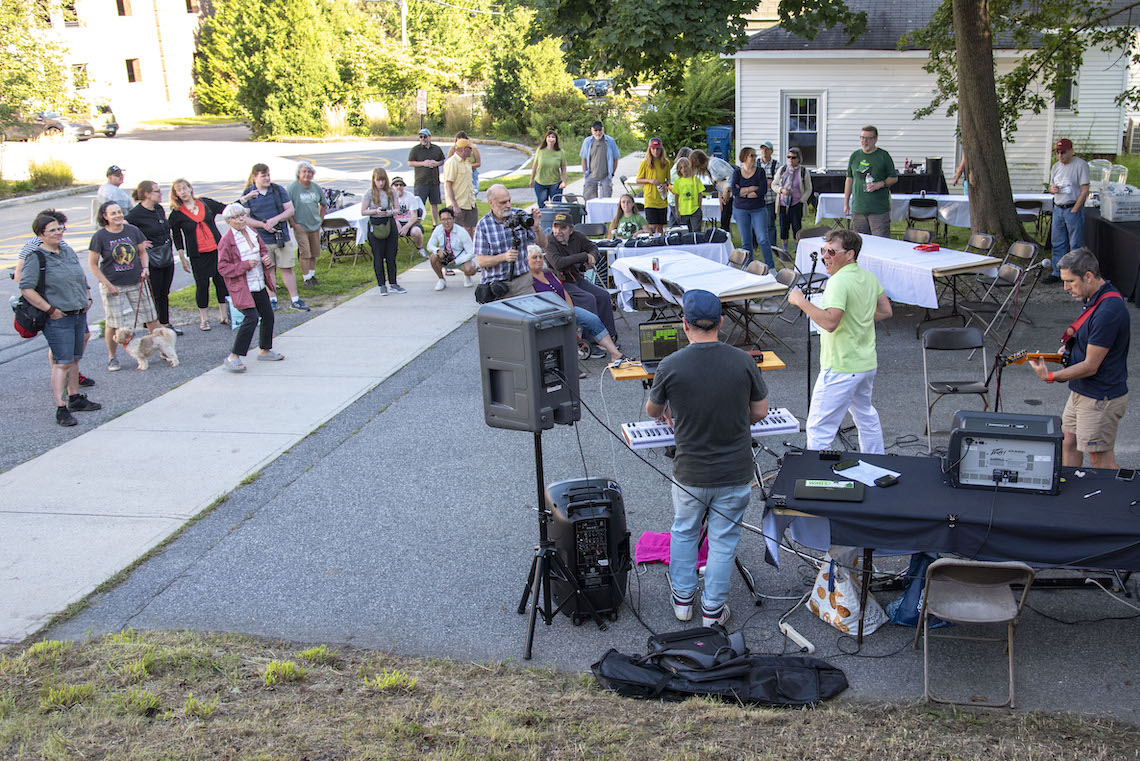
Not only does WMPG keep pace with new technology, it’s often a leader in the field. The station won top honors for its website at the Maine Association of Broadcasters annual award ceremony last month. Ease of navigation and usefulness of content were two of the main criteria.
The human aspect of the station is just as important to Rand as the technical aspect. He doesn’t enforce a single musical format or limit the topics of conversation. On-air personalities have the freedom to pursue their interests, everything from Latin beats to business tips to gospel choirs to movie reviews. Rand welcomes a diversity of content in order to represent the diversity of the community that WMPG serves.
“Each person is unique that’s on the air. It’s not a homogenized presentation that comes from a corporate mentality,” Rand said. “Each two hours of airtime is a unique two hours.”
That nonconformist streak is part of Allen’s enduring legacy. Rather than ask for permission, he took it upon himself to build a basic studio in his dorm room at Anderson Hall in Gorham. Allen attached an antenna to his record player and played one album after another from his personal collection.
Allen called his station WGOR and broadcast on the far end of the radio dial at 106 FM. The signal barely reached past the building, but it was enough to build a following. A few flyers posted around the dorm got the word out.
“The kids were great. We thought it was good. We had a lot of fun with it,” Allen said.
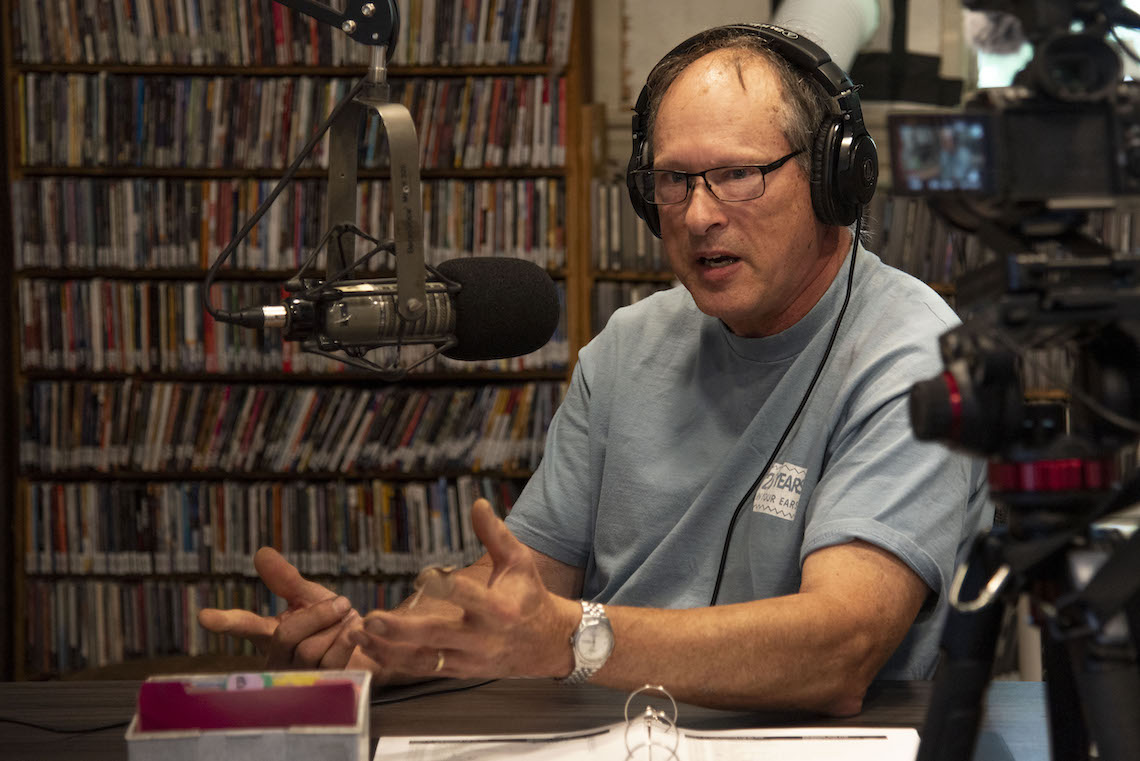
The buzz around the station eventually reached University leaders. They couldn’t allow the station to go on flouting broadcast regulations. But they also saw how much value it added to campus life.
Administrators struck a deal with Allen. Instead of shutting down the station, they worked together to make it official. It took some time to get all the equipment and paperwork in order. The new transmitter went live on August 31, 1973 and WMPG was officially born. Along with the new call letters came a new frequency of 90.9 FM.
Allen stayed on as station manager for the rest of his college career. He graduated in 1974 with an Education degree but soon decided that teaching wasn’t for him. The work he did at the radio station felt like a better fit. He refocused his energies on electrical engineering and went on to a successful career with Fairchild Semiconductor.
“This station was a technical challenge for me that I enjoyed,” Allen said. “I engineered the studio. I designed the antenna system and the transmitter. All that technical stuff I did without any kind of technical background or degree. And I ended up in a very technical career.”
Allen shared that memory and many more on WMPG’s “USM, Music and ME” show, hosted by Margo Maller. She pulled him away from the anniversary party for an hour-long interview, peppered with songs that held special meaning to him.
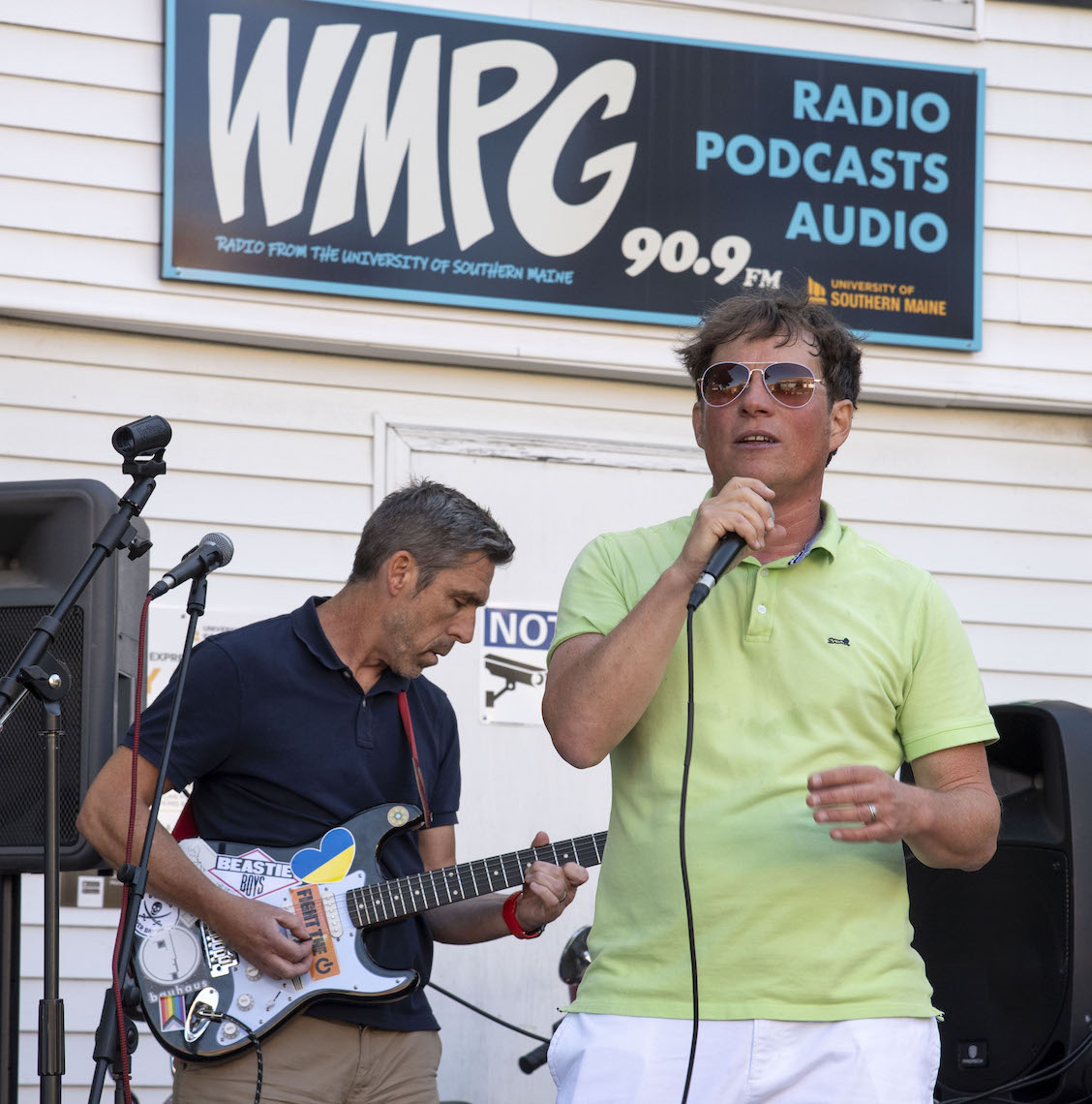
Selections like “Mother’s Daughter” by Santana and “A Whiter Shade of Pale” by Procol Harum hint at the kind of music Allen would have blasted out of his dorm room. The last song he chose was “Make Me Smile” by Chicago. It brought back memories of a happy night in college as he hung out with friends in Upton-Hastings Hall.
“I felt really, really comfortable, for the first time, in my skin,” Allen said. “College changes people and this was a big change for me because I never really felt accepted by anybody. And here I am, sitting amidst a bunch of kids and we’re all laughing and talking.”
By the time the interview ended and Allen stepped outdoors, he found the party had shifted into a different gear. A crowd filled the station’s driveway and spilled onto the sidewalk. They were dancing to live music by the 1980’s throwback band My Blue Monday.
The setlist was full of songs that debuted long before Emily Ireland was born. Over its 50-year history, generations of music lovers have left their mark on WMPG. Ireland plans to make the most of her turn behind the microphone.
“I know that what we’re doing now is gonna keep it going for the future,” Ireland said. “So when I talk to new freshmen coming in, they’re gonna be the next generation of students that come in and enjoy everything that WMPG has to offer.”

